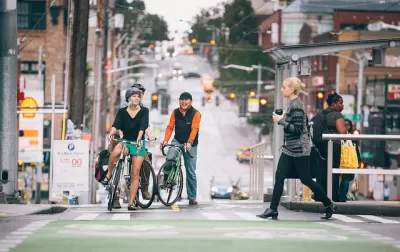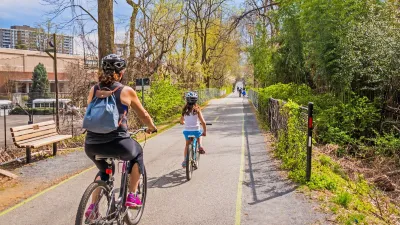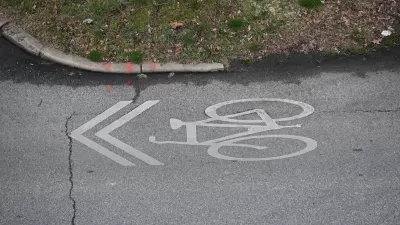The Pacific Northwest is leading the way for bicycle safety at the state level, according to the latest report from the League of American Bicyclists.

The League of American Bicyclists released its annual Bicycle Friendly State rankings at the end of November, commencing with a note on the tragedies that defined 2018: "In 2018, more people were killed while biking than in any year since 1990." That tragedy is followed by a note of hope: "After several years of increasing bicyclist deaths, there is still reason to believe we can be safer: every state is taking some action to make bicycling better. Some, but not enough."
According to the article by Ken McLeod that announces the new rankings, many state departments of transportation are making progress on bicycle safety. As listed in the article:
- Every state has now taken at least one of our five Bicycle Friendly Actions;
- State legislatures are increasingly providing funding for biking and walking improvements and helping state Departments of Transportation ensure that the safety of all users is a core part of their work;
- Eight statewide bike plans [pdf] have been adopted since 2017 and nine are currently in progress; and
- There is more data available than ever on biking and walking, often thanks to federal and state collaboration.
As for the rankings, West Coast states are clearly in the lead, with Washington and Oregon taking the top two spots, respectively. California came in at #4. Minnesota was at #3 and the fifth spot went to Massachusetts.
More insights and the full report can be found in the article. For local coverage of the rankings, see an article by Jonathan Maus on the progress made in Oregon to achieve that state's highest ranking ever.
FULL STORY: NEW BICYCLE FRIENDLY STATE RANKING SHOWS PROGRESS BUT PERILS PERSIST

Planetizen Federal Action Tracker
A weekly monitor of how Trump’s orders and actions are impacting planners and planning in America.

USGS Water Science Centers Targeted for Closure
If their work is suspended, states could lose a valuable resource for monitoring, understanding, and managing water resources.

Congress Moves to End Reconnecting Communities and Related Grants
The House Transportation and Infrastructure Committee moved to rescind funding for the Neighborhood Equity and Access program, which funds highway removals, freeway caps, transit projects, pedestrian infrastructure, and more.

Portland Council Tentatively Approves Sidewalk Repair Plan
The proposal would address sidewalk needs in Portland’s District 1 and District 4.

Expanding Access to Design Education at Honolulu Community College
Honolulu Community College’s Architecture, Engineering & Construction Technologies program highlights the role of community colleges in preparing nontraditional students for careers in architectural and construction technologies.

Integrating Human Rights Into Energy and Extractive Sector Transitions
Why just transition efforts must move beyond economic considerations by embedding human rights principles into business practices to ensure equitable, transparent, and accountable outcomes for affected communities and workers.
Urban Design for Planners 1: Software Tools
This six-course series explores essential urban design concepts using open source software and equips planners with the tools they need to participate fully in the urban design process.
Planning for Universal Design
Learn the tools for implementing Universal Design in planning regulations.
City of Moorpark
City of Tustin
Tyler Technologies
City of Camden Redevelopment Agency
City of Astoria
Transportation Research & Education Center (TREC) at Portland State University
Regional Transportation Commission of Southern Nevada
Toledo-Lucas County Plan Commissions





























